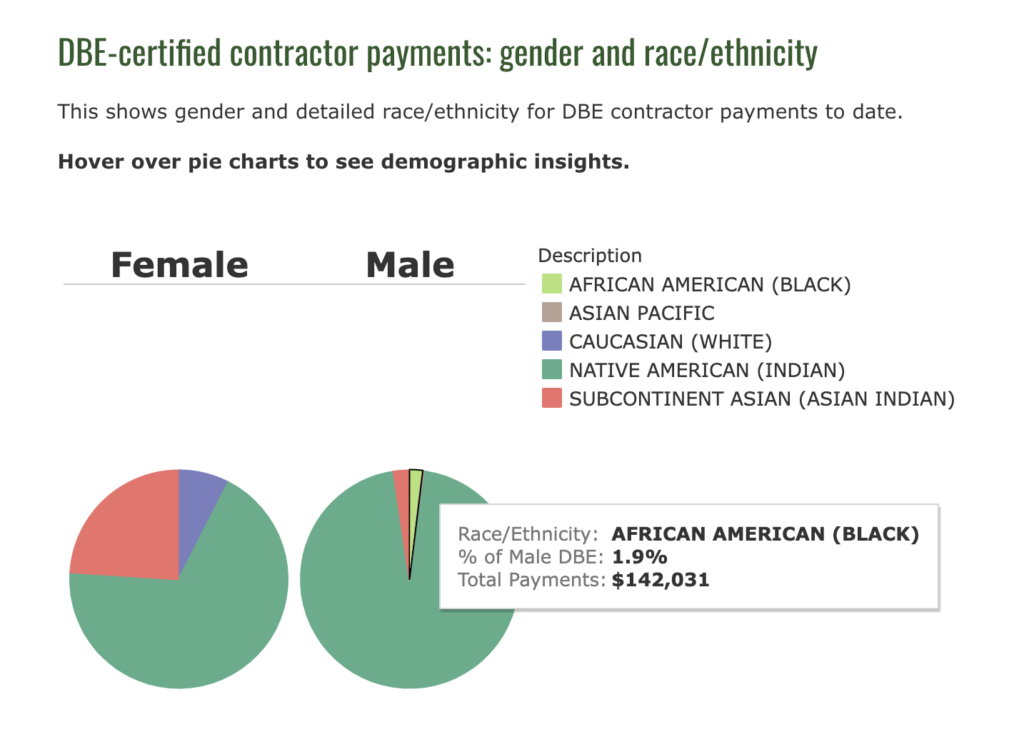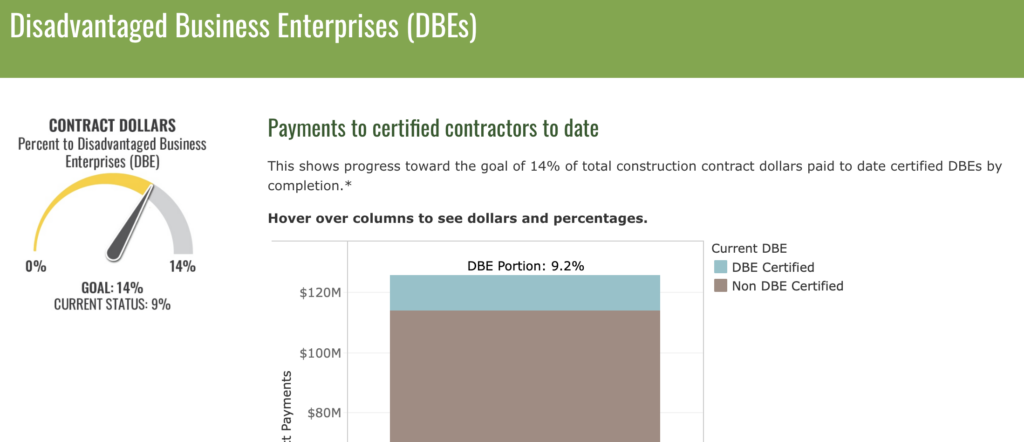The Oregon Department of Transportation (ODOT) is falling short of its own goals of contracting with disadvantaged business enterprises
One-tenth of one percent of I-205 contracts went to Black construction firms
ODOT professed a strong interest in helping Black contractors as a selling point for the
I-5 Rose Quarter project, but instead advanced the I-205 Abernethy Bridge project, which has provided very little opportunities for Black-owned firms.
ODOT has been dangling promises of lucrative construction contracts for Black construction firms if its proposed $1.9 billion I-5 Rose Quarter freeway widening project goes forward. Not surprisingly, as we reported earlier, these firms and many in the local community were angered to hear that the Rose Quarter project was being delayed, probably indefinitely, because ODOT lacks funds—and shifted the funding it did have to a different project.
ODOT has prominently advertised that it intended to hire Black contractors to undertake a significant portion of the I-5 Rose Quarter project. Even though the project was, according to the agency, only about 15 percent designed in 2010, the agency signed a contract with a joint venture (Sundt/Raimore). One of the partner firms, Raimore Construction, is Black-owned. An article published in The Oregonian quoted ODOT officials as saying that Raimore would be expected to bill more than $100 million in project costs (this when the project’s price tag was estimated at a mere $795 million).
Now it appears that the Rose Quarter project is going nowhere fast. ODOT’s latest financial plan reports that the agency has almost no money to meet the project’s $1.9 billion construction cost.Par
A lot of this has to do with the project’s exploding cost, but as we noted earlier, ODOT diverted the funding that was originally earmarked for the Rose Quarter (a project in Oregon’s historically Black Albina neighborhood) and instead used it to pay for the I-205 Abernethy Bridge project in the wealthier and much whiter suburb of West Linn. The members of the Historic Albina Advisory Board, which include Black contractors, have expressed anger that ODOT isn’t moving forward with the Rose Quarter Project—which now as a $1.35 to $1.75 billion funding deficit.
A disparity in Black contracting
The $622 million I-205 Abernethy Bridge project is the biggest source of highway construction contracts in Oregon in nearly half a century, according to ODOT. but so far, African-American construction firms have gotten just one-tenth of one percent of contract payments, according to ODOT reports. While the I-5 Rose Quarter project was supposed to provide $100 million in contract payments for its lead Black contractor (and likely more for subcontractors), Black contractors have so far gotten just 142,000 of the $126 million disbursed for the Abernethy Bridge.
Apparently, ODOT is only committed to hiring Black contractors when they can provide politically valuable leverage for a project in Northeast Portland.
The one big ODOT highway project that is moving forward has provided only a tiny amount of work for African-American contractors. ODOT’s I-205 project dashboard shows that the agency is well behind in meeting its diversity goals and that only about one-tenth of one percent of contracted payments have gone to African-American firms.
ODOT set a goal of providing 14 percent of contract revenues with certified disadvantaged business enterprises (which include women-owned and minority-owned businesses). To date, ODOT has disbursed $126 million to all contractorsand Its current dashboard shows $12 million has gone to certified disadvantaged business subcontractors, only about 9 percent of the total–well below its goal. The bulk of these funds have gone to businesses owned by women, Asian-Americans, and Native-Americans.
Only about $142,000 out of $126 million, a little more than one-tenth of one percent, have gone to African-American businesses.
The $622 million that ODOT plans to spend on the I-205 Abernethy Bridge, makes it the biggest source of contracting opportunities in recent memory. On its website, ODOT brags:
“The I-205 project is the largest ODOT highway project in 45 years.”
If ODOT were seriously interested in bolstering opportunities for African-American businesses there’s no reason that they should not be able to qualify for contracts.


